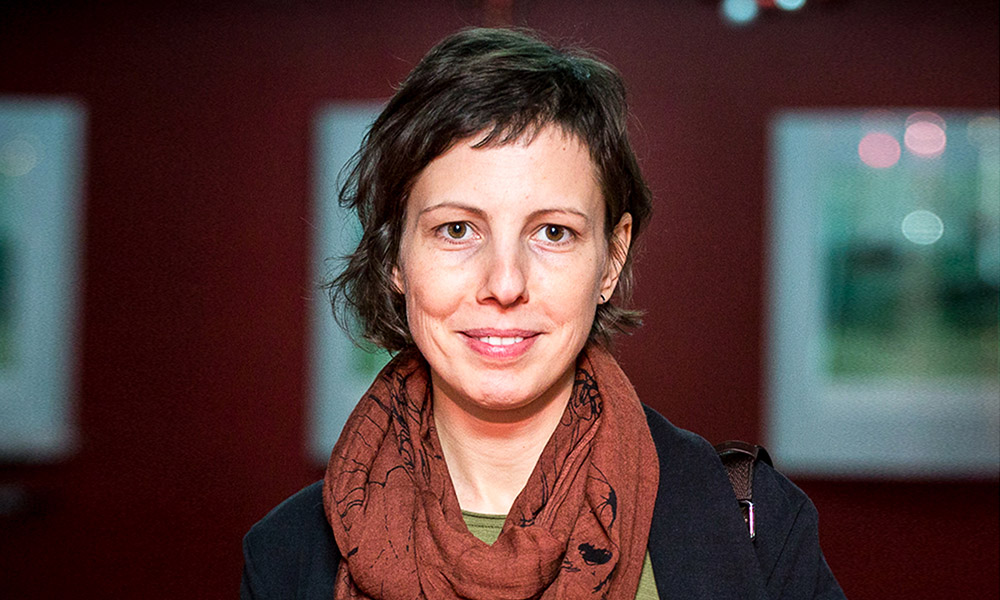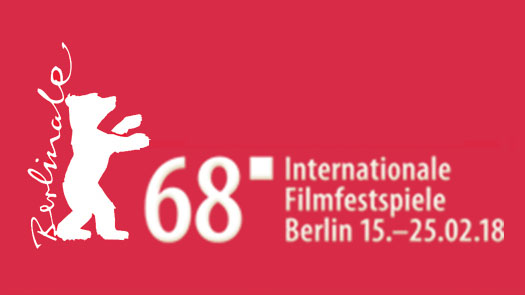Touch Me Not, Adina Pintilie interview: “We refuse the documentary label with all our force. It’s a hybrid of fiction and reality.”

Touch Me Not, the Golden Bear winner of this year’s Berlin Film Festival, is a part-documentary, part-fiction (review here) experience that focuses on a group of people who are have lost the ability to be intimate with other people. The film focuses on the experimental processes used to help human beings rediscover intimacy. We spoke to director Adina Pintilie about the experiment, psychoanalysis and blurring the line between fiction and reality.
Your film features real people exploring their sexuality and the limits of their comfort zone. What was the process behind working on this half documentary/half fiction film?
I think we all decided that we want to go into deep, uncomfortable areas but that was the purpose of this exploration. We wanted to really confront this discomfort zone so it took time, it was a long process. It was two years of research, I wouldn’t call it casting because this is not fiction. You look for like-minded people that would like to come on a journey with you. The process began after we found them, then the relationship of working with them started. We made them keep diaries. Basically, it was not a single period of shooting, it was more like a documentary. You have the research where you film the preparation, then you have the official shooting period, then you go to editing and then back to shooting.
All the while, we had procedures that mixed fiction and reality.The participants received cameras themselves, we would do diaries. I gave them homework on the topic of intimacy so that they would produce their own material, they would send that to me then we would Skype to discuss. Then we repeat that process. So they befriended the team and the camera and our collaboration became more comfortable.
I find your film deals with breaking down old constructs of beauty by exploring what some might call, people outside of the norm, would you agree?
That’s an interesting topic that the film deals with. Look at Christian (subject in the film incapable of growing hair), he becomes more and more beautiful as you get to know him. That’s very interesting. What is beauty and where it comes from? Touch Me Not works with these questions and with bodies outside the norm. The film focuses on the non-normative in many respects and I do feel that beauty is very subjective. I think those people are very beautiful, I don’t know how other people are going to experience their image. To me they are not only beautiful but fascinating from so many different points of view. We’ve been educated to believe beauty is a certain way, and intimacy and sexuality should function in a certain way. So basically the film is questioning all that. It’s not saying replacing an old idea of beauty. It’s just questioning and opening new aspects on this idea.
Do you think your film is a therapeutic experience?
When you grow up and are raised in a family maybe things don’t go right always, in the therapeutic relationship you have a chance to relearn to relate. In connection with that mirror in front of you who is the terrorist. So in this sense, it is a therapy, not in the sense that you cure a disease because that can have many meanings. Touch Me Not can be called a therapeutic process or a therapeutic relationship.
When you turn the camera to the audience and break the fourth wall, does that make it a process that includes you?
The emotional drive that started this research was the assumption I had when I was 20: I thought I knew everything about intimacy, now I realise how wrong I was, so let’s go and discover. I am also part of the process but the focus is not on me. I and the camera are more like the frame through which to read the whole experience. I establish that, especially in the prologue and the epilogue. My position there is more like a child, stepping out into the world and being very curious about people, how they experience intimacy. In the relationship with these people, like Laura and the others, I understand things about myself, I grow, I open my mind.
When I watched the movie, I had the feeling that you were critical of the Freudian approach to sexuality. The film deconstructs that, the guilt that we have assigned to sexuality. What is your position on the psychoanalysis?
The film is not a book on psychology and Freud is not the only one who looked at this connection between childhood and your further relationships. This idea is explored in most psychological approaches. What had more impact in this research is another book by Michael Bader, called Arousal. He explores the effects of our sexual behaviour as a key to understanding the deeper self. If you look at an S&M relationship, there’s a power dynamic. If you experience these drives, first of all you might judge yourself but if you look with honesty to what that means; why do you have to be controlled by someone? why do you have to give up responsibility? If you look at this stuff and dig down, you might realise things about yourself that are not necessarily connected to sexuality but to other blockages from the past. Looking into our sexual behaviours is a mirror of ourselves. You don’t judge yourself or others as much.
Seani, our colleague, we have a character in the film that deals with that. Seani-therapy is a mix of escort and psychotherapist. He explores Laura’s borders and anger issues. This guy has the same approach as Michael Bader, looking into your sexual fantasies, preference, needs and trying to understand what is behind that. How can you be helped to free yourself from these blockages? Neither of these methods looks at it as some sort of disease more of an imbalance that you are confronted with at a certain point that you can regulate.
Would you say Touch Me Not is a documentary or is it something beyond that?
I would never call it documentary. We refuse that label with all our force. It’s a hybrid of fiction and reality.
Sean Gallen
Touch Me Not doesn’t have a UK release date yet. Read our review here.
Read more reviews from our Berlin Film Festival 2018 coverage here.
For further information about the event visit the Berlin Film Festival website here.
Watch a clip from Touch Me Not here:


























Facebook
Twitter
Instagram
YouTube
RSS